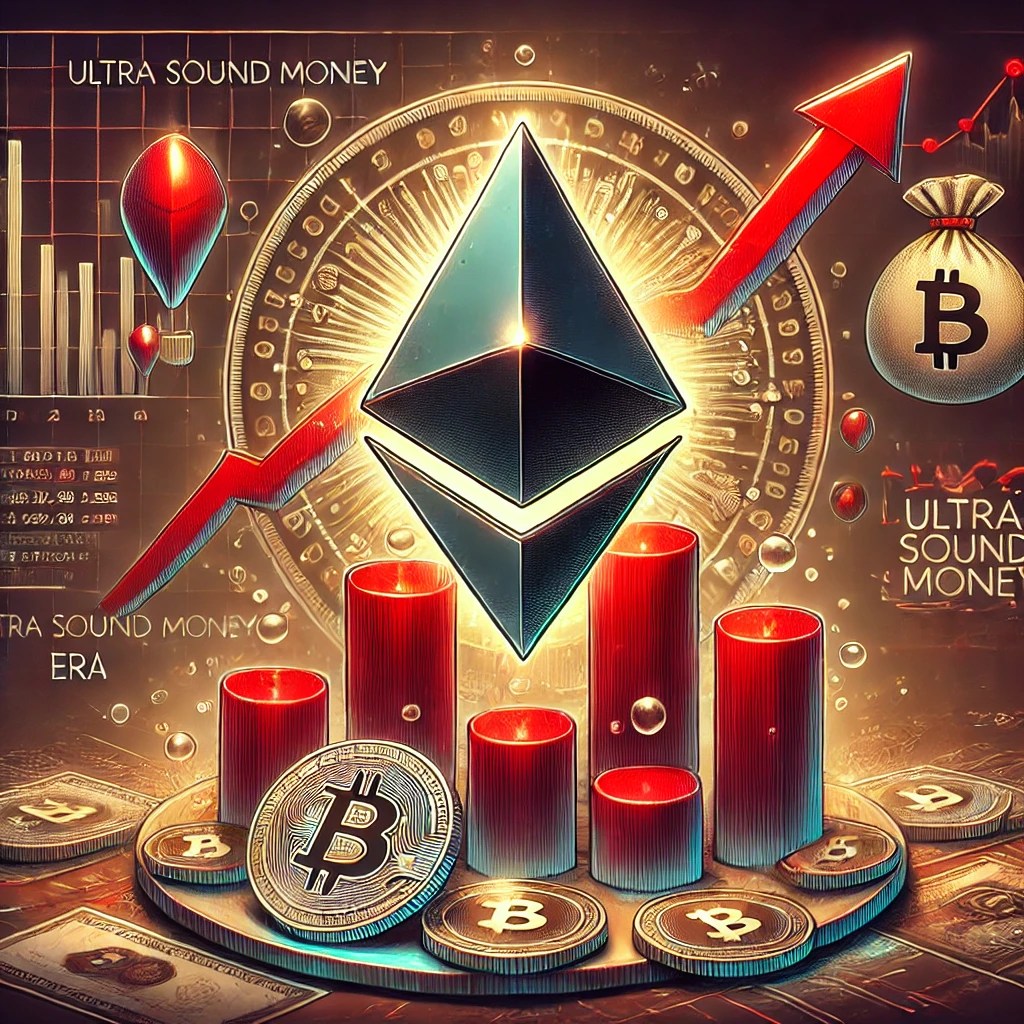Ethereum (ETH) which is addressed as ultra-sound money due to its deflationary supply method, now appears to be facing new challenges that have prompted some analysts to question whether this narrative still holds.

Prominent crypto analyst Thor Hartvigsen has recently highlighted a shift in Ethereum’s fee generation and supply dynamics, prompting some to question the narrative of Ethereum being ultra-sound money.
According to Hartvigsen’s analysis, August 2024 is set to be the worst month for fees generated on the Ethereum mainnet since early 2020. This decline is largely attributed to the introduction of blobs in March, which has enabled Layer 2 (L2) solutions to avoid paying substantial fees to Ethereum and ETH holders.
As a result, most of the activity has moved from the mainnet to these L2 solutions, with the majority of the value being captured at the execution layer by the L2s themselves.
This development has led to Ethereum becoming net inflationary, with an annual inflation rate of approximately 0.7%. This means that the issuance of new ETH currently exceeds the amount being burned through transaction fees.
Hartvigsen further discloses the impact of this inflation on Non-Stakers and Stakers. Non-stakers primarily benefit from Ethereum’s burn mechanism, where base fees and blob fees are burned, reducing the overall supply of ETH.
However, with blob fees frequently at $0 and the generation of base fees decreasing, non-stakers are experiencing less benefit from these burns. At the same time, priority fees and Miner Extractable Value (MEV), which are not burned but instead distributed to validators and stakers, do not directly benefit non-stakers.
Additionally, the ETH emissions that go to validators/stakers have an inflationary effect on the supply, which negatively impacts non-stakers. As a result, the net flow for non-stakers has become inflationary, especially after the introduction of blobs.
For stakers, the situation is slightly different. Hartvigsen reveals that stakers capture all the fees, either through the burn or via staking yield, which means that the net impact of ETH emissions is neutralized for them.
However, despite this advantage, stakers have also seen a significant drop in the fees flowing to them, down by more than 90% since earlier this year.
This decline raises questions about the sustainability of the ultra-sound money narrative for Ethereum. To address this, Hartvigsen concludes that Ethereum no longer carries the ultra sound money narrative which is probably for the better.
The above is the detailed content of Is ETH No Longer Ultra-Sound Money?. For more information, please follow other related articles on the PHP Chinese website!




